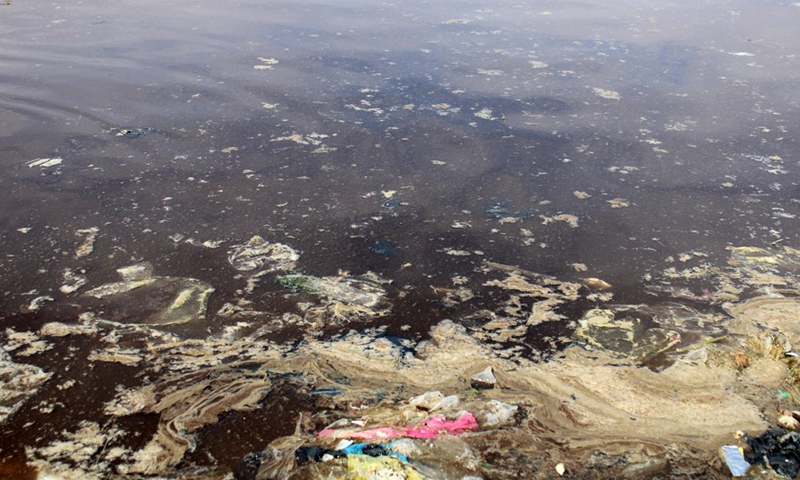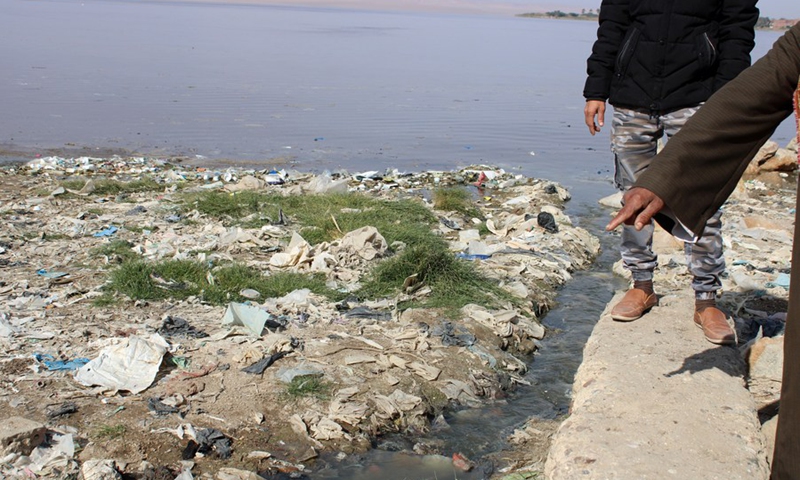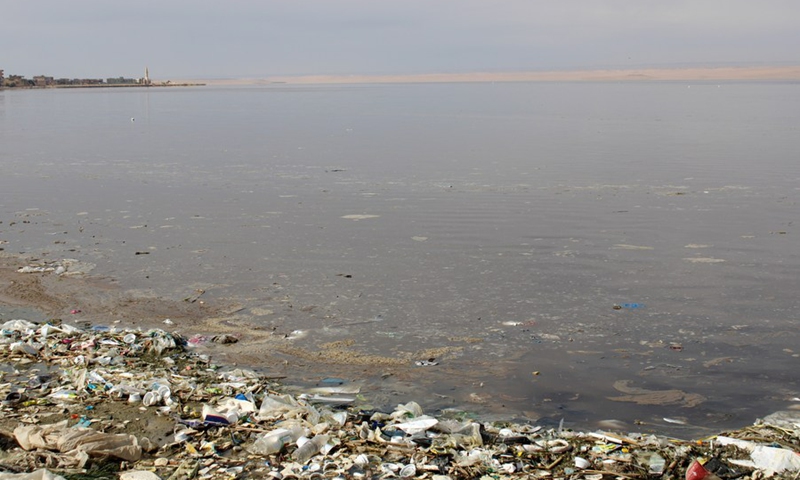
Photo shows the polluted Lake Qarun in Fayoum Province, Egypt, on Jan. 4, 2022.(Photo: Xinhua)

Photo shows polluted Lake Qarun in Fayoum Province, Egypt, on Jan. 4, 2022.(Photo: Xinhua)

Photo shows polluted Lake Qarun in Fayoum Province, Egypt, on Jan. 4, 2022.(Photo: Xinhua)

Fishermen are seen by the Lake Qarun in Fayoum Province, Egypt, on Jan. 4, 2022.(Photo: Xinhua)
Unbridled water pollution has put fish production in Lake Qarun to a halt, leaving local fishermen in great hardship "as unemployment rates are hiking and sources of income are vanishing," a local fisheries official has said.
"Nearly 650 boats that were working in the lake have stopped because the lake no longer produces fishes," Ragab KirAllah, mayor of fishermen of Lake Qarun in El-Fayoum province, some 80 km southwest of the capital Cairo, told Xinhua.
The 1,385-square km Qarun is considered the oldest freshwater lake in Egypt and a precious reserve. Its ecosystem, however, has been in a critical condition after municipal sewage and agricultural wastewater was discharged into the waters, which drives the salinity to a level unfit for fish habitation.
"In the past, people were drinking fresh water from the lake, but now its smell became unbearable and those who swim in the lake would experience itchy skin and coughing," KirAllah added.
Recent years have seen a record plummet in fish production from natural waters, due to such factors as overfishing, unsustainable fishing techniques, pollution and habitat degradation, according to a piece of research published in the Egyptian Journal of Aquatic Life and Fisheries.
This was followed by a parasite challenge, dealing another heavy blow to local fisheries, the Egyptian study revealed.
"Although isopod parasites were observed in marine fisheries for a long time and considered as a part of the aquatic ecosystem, today it received considerable attention because they cause serious damage to Lake Qarun," said Atta Allah Abdel-Tawab, chairman of a water station in a nearby village.
The isopod parasite attaches itself to the gill of a fish, paralyzing and suffocating it. "It causes more than 70 percent losses of the lake catch because it associates with many commercially important fishes," Atta Allah Abdel-Tawab noted.
Salty water is the best incubator for the isopod, he noted. According to the state-run National Research Center, each liter of water in the lake contains 40 grams of salt.
According to Fish Resources Authority (FRC) in El-Fayoum, the lake's fish production has declined to 873 tons in 2016 from 4,522 tons in 2014 after the isopod plague. "The current production of the Lake has highly deteriorated," said Salah Al-Nady, an FRC member.
"The lake was the only source of income for my family and ancestors for hundreds of years," said Moussa Monem, a 64-year-old fisherman from Shakshouk, a village on the lake's periphery.
The pollution has formed salt sediments in the lake bed, which created a severe odor that kills the fishes, the old man said, noting that fish production has reached "its zero levels," and what's worse is that being laid-off also damaged their fishing tools and boats.
Egypt's authorities are endeavoring to restore the lake.
Ahmad Al-Ansary, governor of El-Fayoum, said there are several salt dilution projects underway to reduce the salinity of the lake and to restore the fishing resources, stressing "government keenness to restore the ecological balance" for the sake of local livelihood.
Al-Ansary highlighted that the state-run Academy of Scientific Research and the FRC has undergone separate analysis of the water quality, and all results will be reviewed to develop a clear action plan to tackle the problems and help restore the lake's fish production.
